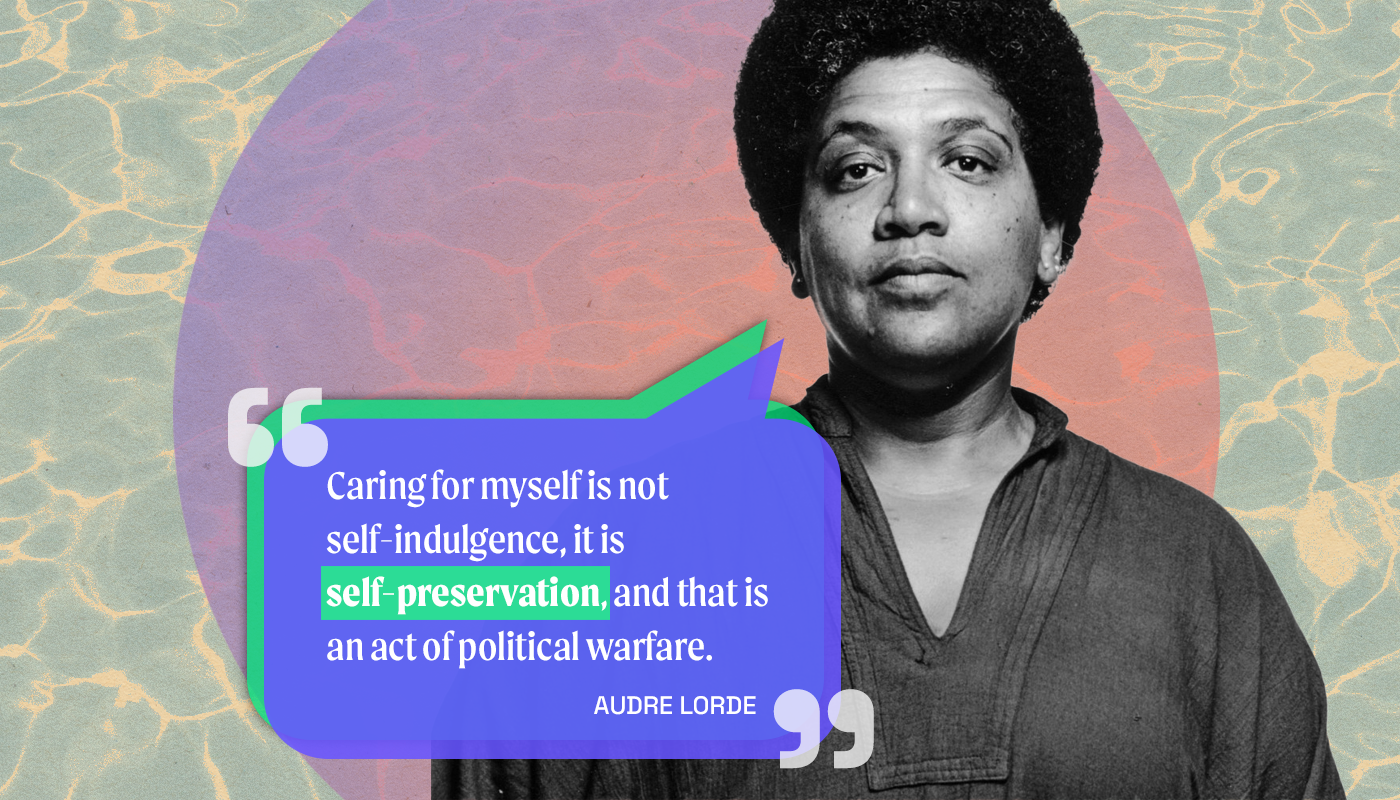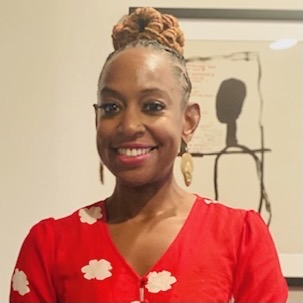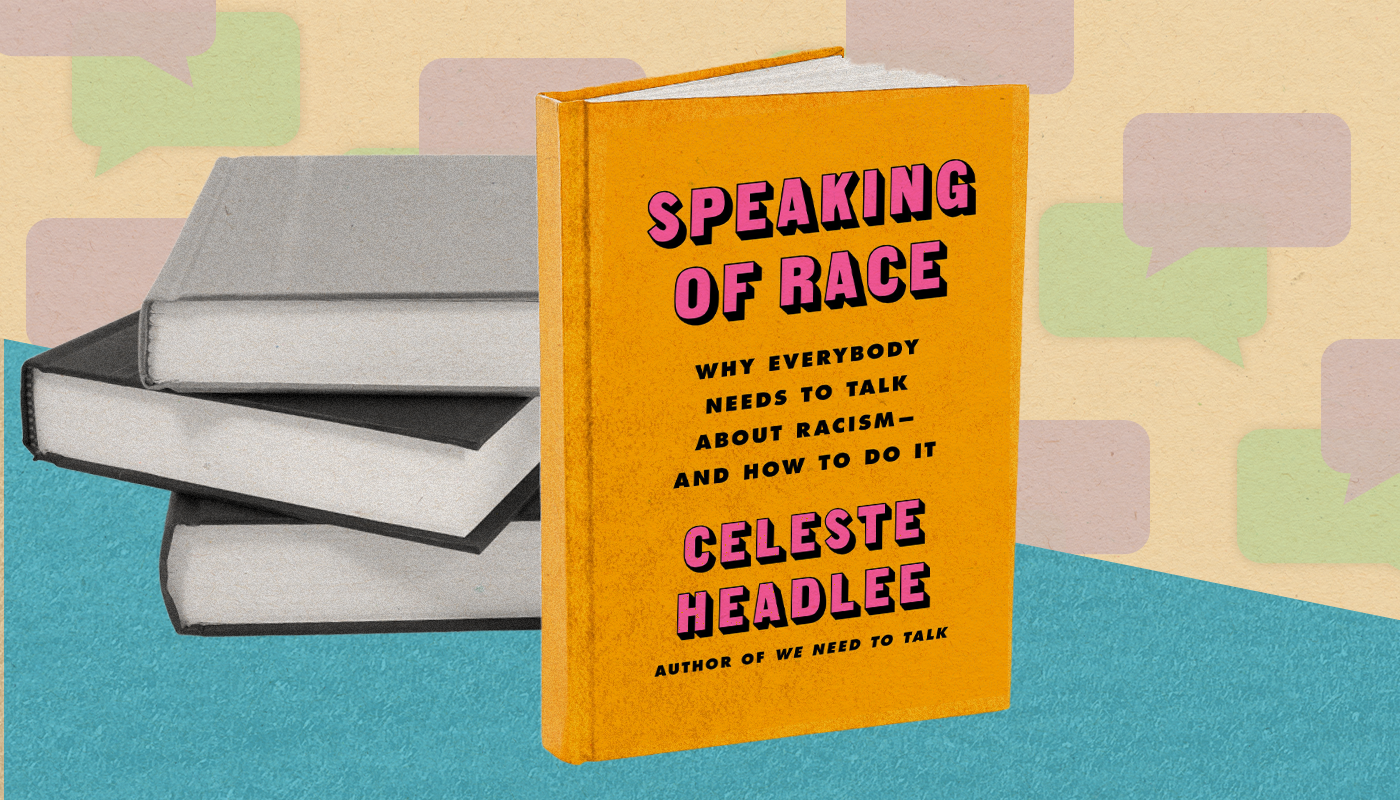Radical self-care as DEIB in the workplace
Disrupt systemic inequities that strip people from being their authentic selves at work.

When writer and feminist Audre Lorde centered caring for herself as “self-preservation” and an act of “political warfare” back in 1988, the self-care movement of today had not yet arrived. However, many responded to the provocative sentiment, especially Black women, who have been historically marginalized through oppressive labor practices. I start with the social construct of race as an entry point because it permeates all aspects of our lives: where we live, the kind of education we have access to, and even how we are treated at work. Racism intersects with classism, patriarchy, sexism, ableism, homophobia, and a host of other inequities that have unfortunately become common in the workplace.
The question I want you to ask yourself is this: What is my radical self-care framework, and how can I incorporate it into the workplace to center psychological safety for myself and others?
Psychological Safety
Harvard professor Amy Edmondson coined the term “psychological safety” to describe the organizational structure of teams with open and honest communication that allows employees to have a sense of comfort about their ideas and identities at work.
Radical self-care at work drives equity
Considering the competing systems in place, it is imperative that we center our radical self-care at work as a way to disrupt systemic inequities that strip folx (especially those from historically marginalized backgrounds) from showing up as their authentic selves.
Despite the overwhelming whiteness of the wellness industry and an extreme focus on the “treat yourself” self-care mantras touted on social media, radical self-care is more aligned with social justice. Radical self-care centers diversity, equity, inclusion, and belonging (DEIB) by asking us to not only see ourselves but to see others who typically do not have a seat at the proverbial table: in this case, the workplace.
At this table, hierarchy and white privilege are paramount to one’s pending success, opportunities for promotion, and building generational wealth. However, from an equity lens, few have opportunities to build generational wealth as pay inequity runs rampant nationwide.
Center radical self-care in your DEIB initiatives to cultivate belonging
It is no secret that many companies and organizations are hiring DEIB professionals to implement effective strategies that attract, recruit and retain talent. However, these DEIB trainings often align with pre-existing organizational culture rather than disrupt inequitable policies and practices. When we approach equity work as a list of protocols to implement, we are using DEIB as a bandaid for very complex interpersonal relations and hierarchical organizational culture. Instead, we should see this work as a set of tools to help us acknowledge our biases and work more collaboratively in diverse settings.
A clear DEIB strategy must center love and radical self-care, as DEIB is inherently about supporting people to feel comfortable in their cultural ways of knowing, being, and becoming in order to be their best selves at work and beyond. This is an important point, as research continues to show that organizations with effective DEIB strategies are more productive and perform better fiscally and socially.
Transform your workplace culture with radical self-care
What makes radical self-care transformative is our ability to love ourselves and others in a more trusting way [relational trust]. It is this trust that helps to develop inclusivity within an organization. Through my coaching and consulting business, Self Love Life 101, I work with individuals and organizations to implement radical self-care as DEIB in the workplace. We start with the self and determine the biases framing our lenses, which is directly tied to a Critical Race Theory (CRT) framework. CRT began as a legal theory to address the ways that the law perpetuates the institution of racism as a primary tool of inequity. Intersectional by design, CRT touches on all facets of attaining equality, based on who we are, and how our various identities impact our daily lives.
Since many of us have been socialized to adopt white dominant culture, starting with our biases and lived experiences reinforce a counter-storytelling approach to our radical self-care in the workplace. Counter-storytelling centers the experiences of those who are at the margins of the dominant, mainstream narrative, which is also integral to inclusive practices. To be better to ourselves and others as we work, we must continue to question the organizational landscape and how we fit in it — or don’t. If you are a member of the dominant racial group in your organization, you have a responsibility to center the voices often left out of critical conversations. Similarly, if you are from a historically marginalized group, investigate your biases, as well, to foster cross-functional and collaborative inclusivity.
“In order to survive,
![]() those of us for whom oppression is as American as apple pie have always had to be watchers.” – Audre Lorde
those of us for whom oppression is as American as apple pie have always had to be watchers.” – Audre Lorde
Audre Lorde reminds us that, “in order to survive, those of us for whom oppression is as American as apple pie have always had to be watchers.” I understand this intimate dance of being under surveillance in the workplace. My Black womanness introduces me before I do, and the inherent biases of the observer, colleague, or employer have the ability to not only shatter my sense of belonging but to push me out as well. Centering our radical self-care as DEIB will help us cultivate inclusive work environments where everyone feels free enough to be their authentic selves.![]()








